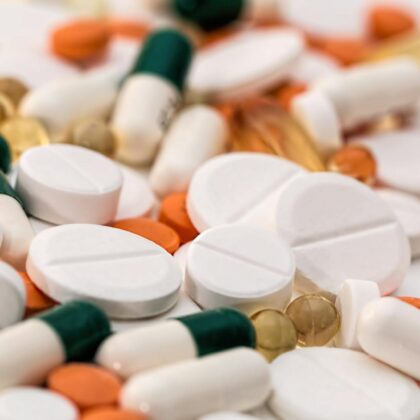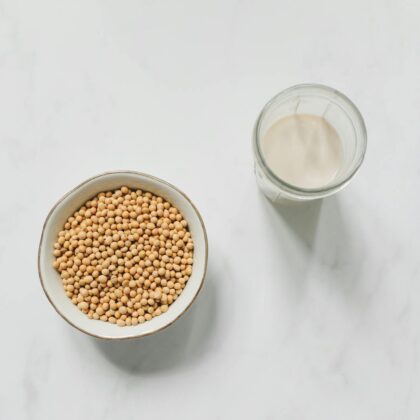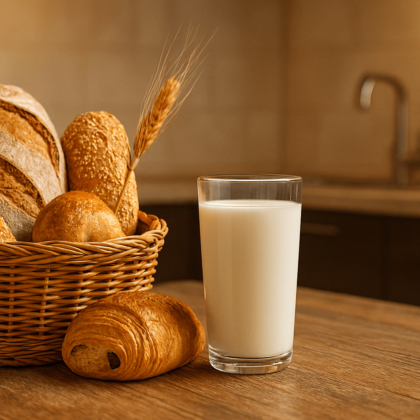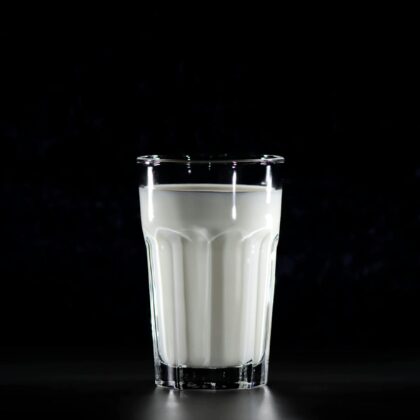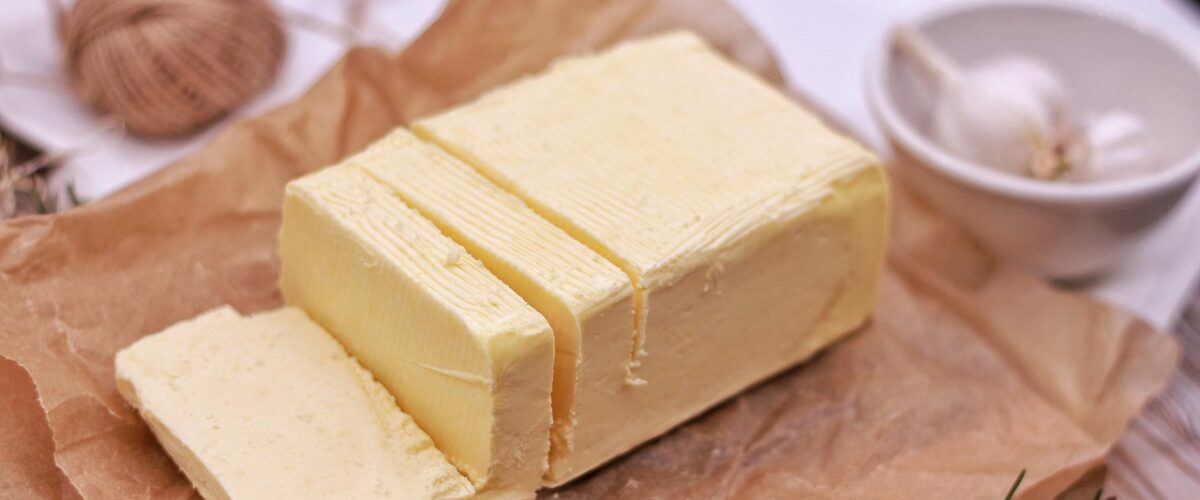
Though discreet and often unrecognised, lipase is one of the enzymes essential to our digestive health.
Not only is the enzyme lipase essential for reducing the feeling of fullness after a meal rich in fatty foods, it also ensures optimal nutrition and energy metabolism. Find out more about this important organic substance.
Focus on the enzyme lipase and its role in lipid digestion
In the body, lipase has one main function: to break down fat molecules (or "triglycerides") into fatty acids and glycerol. Thanks to this process, the body is then able to absorb and use the fats contained in food as a vital source of energy. Excess energy is stored as fat for later use.
The lipase enzyme is actually involved at various levels of the digestive process:
- It starts the breakdown of fats in the stomach.
- It continues the digestion of fats with the help of bile in the small intestine.
- It enables fatty acids and glycerol to be absorbed by intestinal cells.
A good level of lipase in the body contributes directly to reducing digestive problems. associated with the consumption of fatty foods, as well as improving the overall health of the pancreas and gallbladder. The role of lipase in lipid digestion also indirectly links this enzyme to the metabolism of cholesterol, which is one of the lipids circulating in the blood.
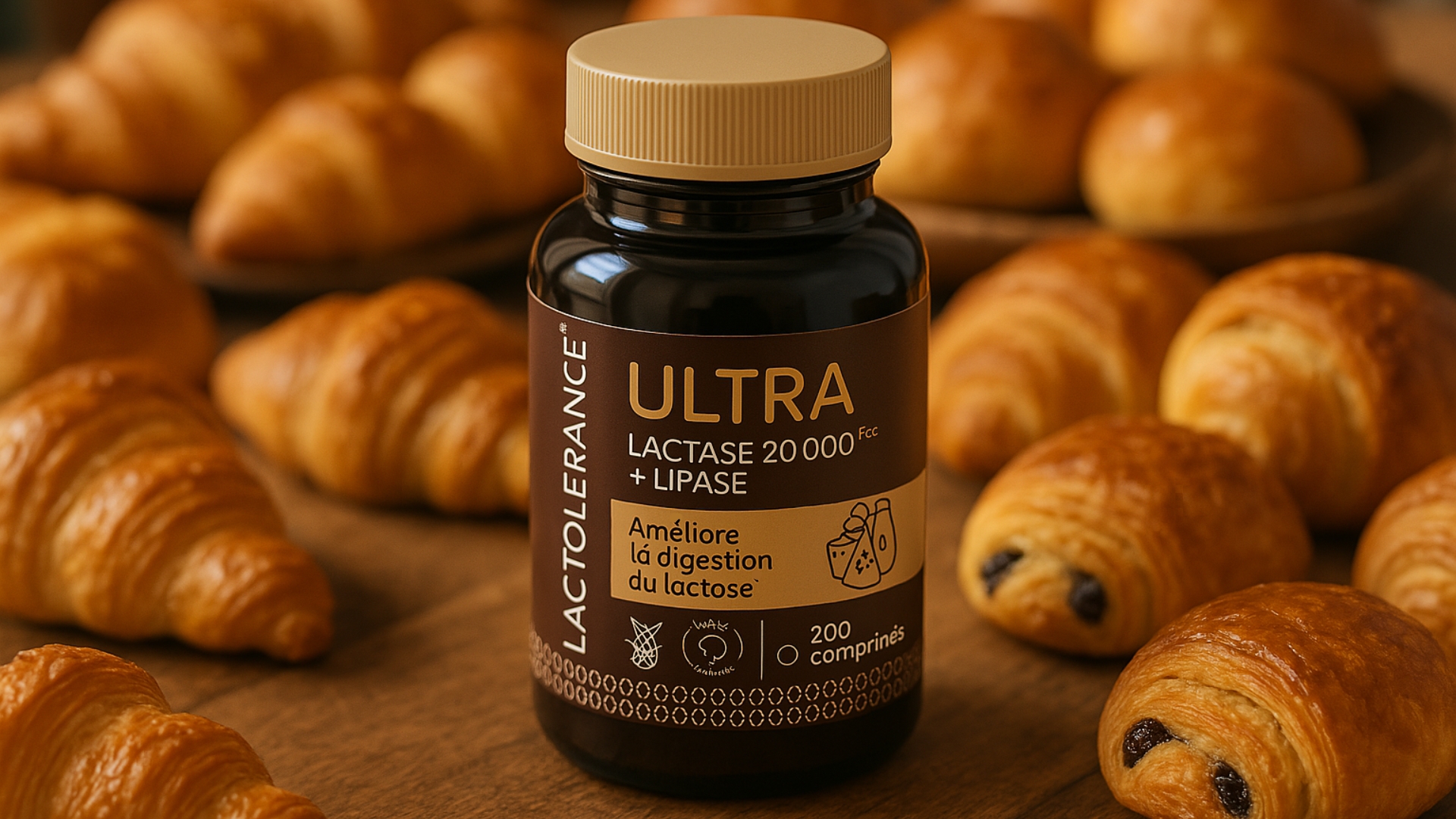
Discover LACTOLERANCE ULTRAour innovative formula offering dual digestive action! Combine the benefits of lactase and lipase to improve your digestion.
What are the sources of lipase?
The enzyme lipase is naturally produced by several organs in the digestive system:
- The stomach secretes gastric lipase, which begins the process of breaking down fatty foods.
- The pancreas produces pancreatic lipase, which combines with bile to digest lipids.
The salivary glands and small intestine are also involved in lipase secretion.
Certain foods also contain natural lipase, such as avocado, mango, coconut and pine nuts. In the event of pancreatic insufficiency or digestive disorders, it is recommended that those concerned to include enzyme supplements in their diet.
Lipase deficiency and lactose intolerance: what are the links?
Based on the lactose intoleranceDigestive disorders associated with lipase deficiency are the result of a lack of production of an enzyme within the body: lactase on the one hand and lipase on the other.
Between bloating and abdominal pain, the signs of these two disorders are similar and sometimes lead to misdiagnosis. Their coexistence is therefore likely to intensify the digestive discomfort experienced.
The function of lipase is to break down fats, while lactase is used to assimilate sugars. In other words, lipase is not involved in lactose digestionwhich is the sugar in milk, and vice versa for lactase and lipids.
To determine the exact cause of your digestive problems, consider carrying out a precise and appropriate diagnosis:
- A lipase blood test to assess production of the enzyme
- A hydrogen breath test to check your lactose tolerance

Hello, I'm Vincent
Like you, I'm lactose intolerantI know exactly what you're going through and the difficulties you encounter on a daily basis. For over 10 years, I've been helping our customers to use our dietary supplements and giving advice and tips on how to improve their digestive comfort. I'm also a keen cook and gourmet, so you'll find my favourite recipes for a lactose-free diet in this blog.
Lactose intolerance is not inevitable! With LACTOLERANCE you can digest with complete peace of mind
